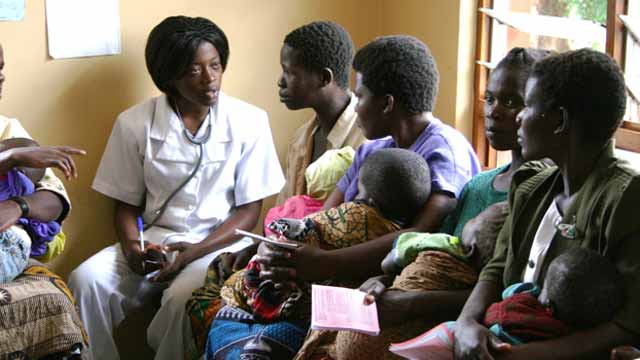In the relentless pursuit of combating the alarming maternal mortality rate during childbirth, the United Nations Population Fund (UNFPA) has underscored the pivotal role that access to family planning information and services plays in transforming the healthcare landscape. Family planning is not merely a choice; it’s a lifeline that empowers individuals to make informed decisions about having children, armed with the necessary resources, techniques, and knowledge to implement those choices.
Esther Somefun, a gender/reproductive health analyst at UNFPA, recently revealed staggering statistics that could reshape the maternal healthcare narrative. According to Somefun, studies indicate that approximately 3.5 million pregnancies could be prevented, and over 31,000 women could be spared from maternal mortality if all women had the ability to plan their families and access modern family planning methods.
According to The WHO the maternal mortality during childbirth is underscored by stark data that paints a distressing picture of the current healthcare landscape. In 2017, Nigeria’s maternal mortality rate was estimated at a staggering 917 deaths per 100,000 live births. Shockingly, this rate increased by nearly 14% in 2020, reaching an alarming 1047 deaths per 100,000 live births.
These compelling findings took center stage at the Family Planning Hackathon, a collaborative initiative organized by the Federal Ministry of Health and Social Welfare, UNFPA, and the Microsoft Engineering Team. Somefun emphasized the transformative impact that technology and innovation could have on reducing maternal mortality rates. “We are gathered to explore domestically developed technological invasions that we are sure would facilitate access, increase demand, and uptake of family planning,” she declared.
One of the standout participants at the hackathon was the Repo-create Team, which focused on addressing the alarming rate of unsafe abortions and its devastating impact on maternal mortality, particularly among young women. Their presentation included the tragic story of Bisi, a young woman who lost her life due to complications arising from an unsafe abortion—a narrative sadly reflective of the harsh realities faced by many women in the country.
The Repo-create Team, along with other innovative groups, introduced proposals aimed at tackling family planning challenges and increasing contraceptive use in Africa. Their focus extends beyond traditional methods, advocating for comprehensive sexual and reproductive health education accessible to the public. These proposals allow users to discreetly access family planning services from the comfort of their homes, providing a solution that addresses the prevalent issue of unsafe abortions and increases awareness about family planning options.
By offering accurate information and countering misconceptions, these initiatives strive to empower individuals to make informed decisions about their sexual and reproductive health. A key aspect of their approach is to bridge the digital divide, ensuring equal access to family planning resources for all segments of society.
Rhoda Robinson, the Executive Director of Hacey Health Initiative, expressed strong support for these tech-driven initiatives, underscoring the need for sustainable solutions to meet Nigeria’s family planning targets and address societal challenges. Robinson emphasized the potential of technology to revolutionize healthcare and provide tailored solutions that resonate with the local context.
Nigeria, with its ambitious goals of reducing the high maternal mortality rate and increasing universal health coverage, aims to leverage technology and develop solutions that align with the specific needs of its population. Through collaboration with existing organizations and widespread implementation of these interventions, there is a real prospect of positively impacting the lives of thousands, contributing substantially to the achievement of family planning sustainable development goals outlined by the United Nations. The journey towards safer motherhood has entered a new era—one where innovation and technology serve as catalysts for positive change.



